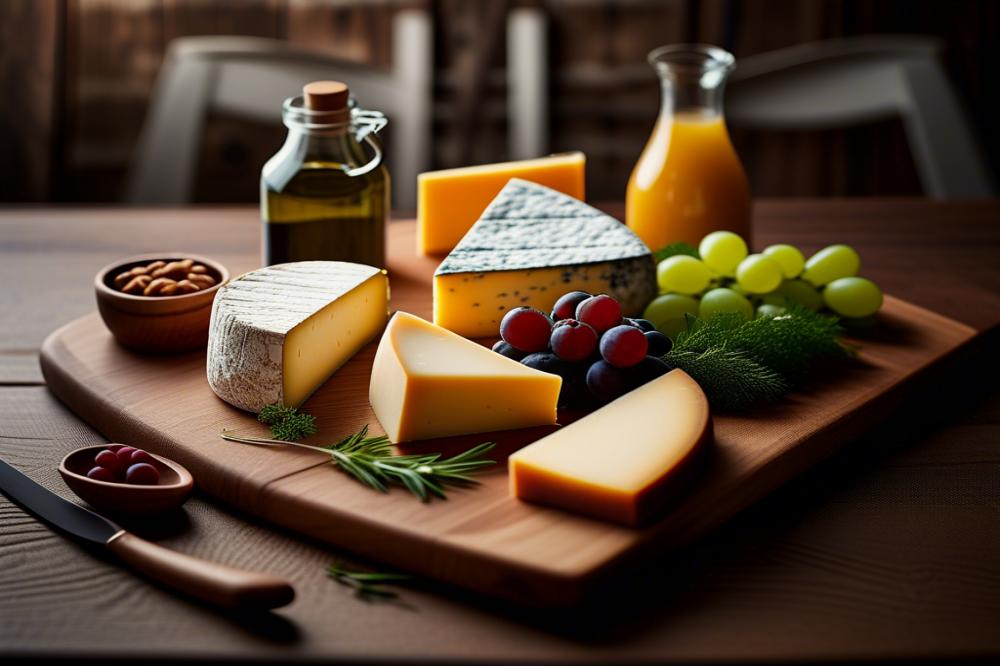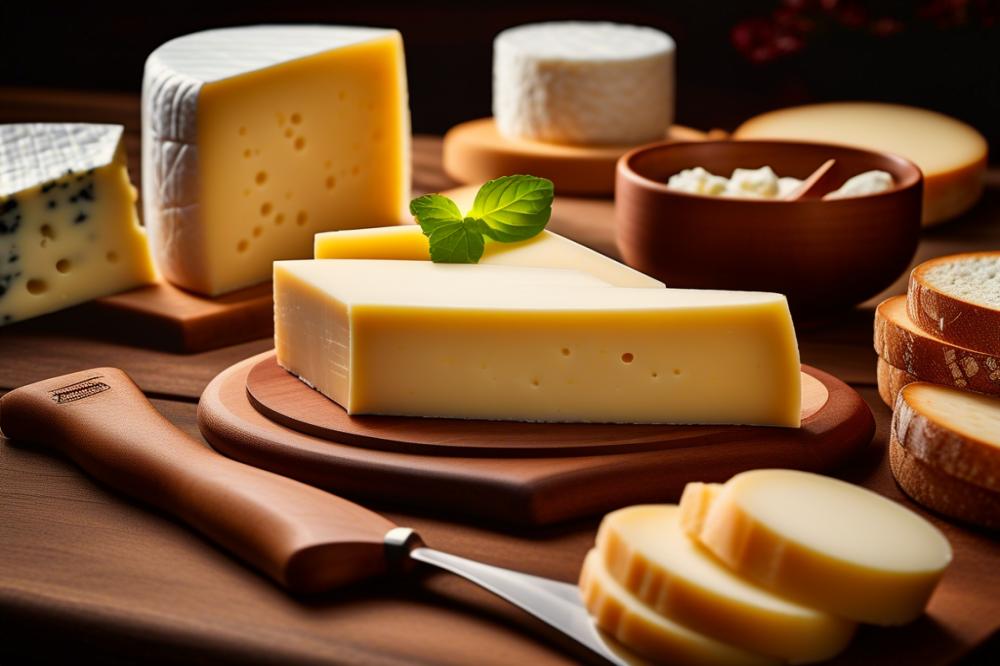The Rise of sustainable cheesemaking in Sweden
sustainable cheesemaking is becoming an important movement in Sweden. This approach focuses on local practices, which helps reduce environmental impact. As more people recognize the benefits, the interest in this style of production is growing. People want to support methods that promote animal welfare and respect for nature.
Swedish cheese stands out for its flavors and textures. Many varieties are inspired by traditional techniques, often using local ingredients. This connection to the land helps define what Swedish cheese truly is. Small-scale farms contribute greatly to this landscape. These farms focus on quality over quantity, producing cheese that is rich in flavor and history.
The charm of Swedish cheese goes beyond taste. It reflects a commitment to sustainability that resonates with many consumers. Cheese made through local traditions often has a smaller carbon footprint. When people buy these products, they feel good knowing they are helping the environment. Supporting local cheesemakers creates a positive cycle, benefiting the community as a whole.
In this way, cheesemaking does not just focus on food. It connects individuals to their environment and their culture. As the industry continues to grow, the opportunities for everyone involved expand. Embracing sustainable practices could redefine the future of cheesemaking in Sweden.
Sustainable Cheesemaking
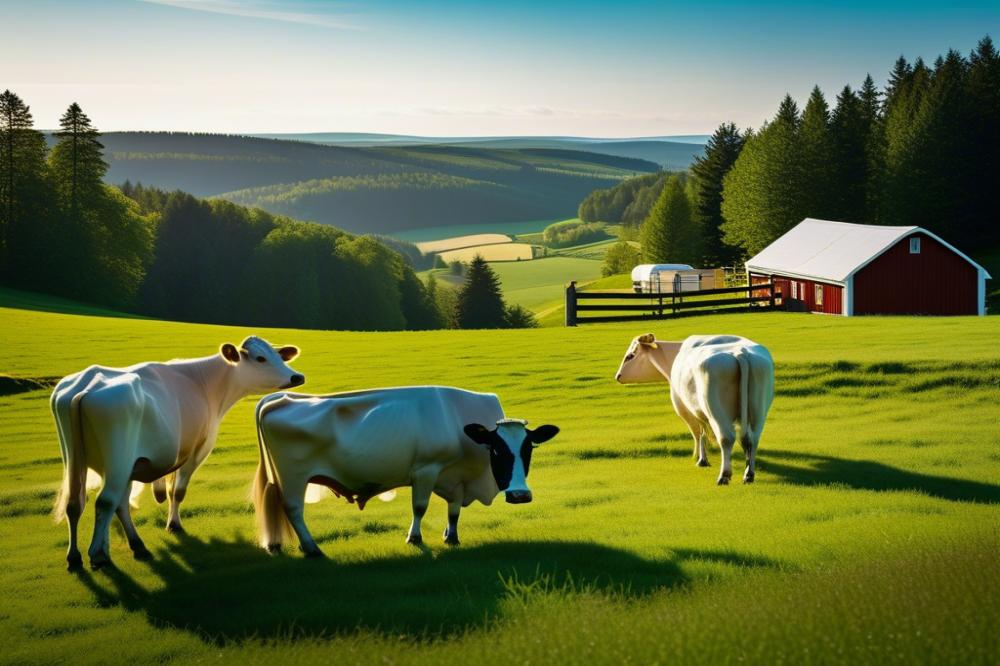
Many cheesemakers in Sweden are embracing practices that prioritize both the planet and animal welfare. Organic farming plays a significant role in this movement. By avoiding synthetic fertilizers and pesticides, farmers create healthier soils and ecosystems. This approach supports biodiversity and reduces pollution in the surrounding areas.
Animal welfare is another essential aspect of sustainable production. Happy cows produce better milk, which leads to higher quality cheese. Swedish farms often focus on providing animals with ample space to roam freely. They adhere to high standards that promote their health and well-being. This commitment not only benefits the animals but also ensures consumers receive a superior product.
Innovative techniques are being embraced by cheesemakers across the country. Some utilize solar energy to power their operations. Others are exploring methods for reducing water usage during the cheesemaking process. For instance, certain producers recycle water from the cleaning processes, minimizing waste. Technologies like these help lower the environmental footprint of cheese production.
Benefits of implementing sustainable methods are numerous. Consumers enjoy products that are not only delicious but also ethically produced. The focus on sustainability can drive community support and loyalty. Moreover, many people are willing to pay a premium for cheese that aligns with their values. As awareness grows, so does the demand for responsibly made cheese.
By choosing to invest in sustainable cheesemaking practices, Swedish producers are setting a crucial example. They are taking steps that protect the environment while promoting animal welfare. Cheese lovers can feel good about their choices when purchasing these products. The positive impact ripples through communities, economies, and ecosystems alike.
Sweden
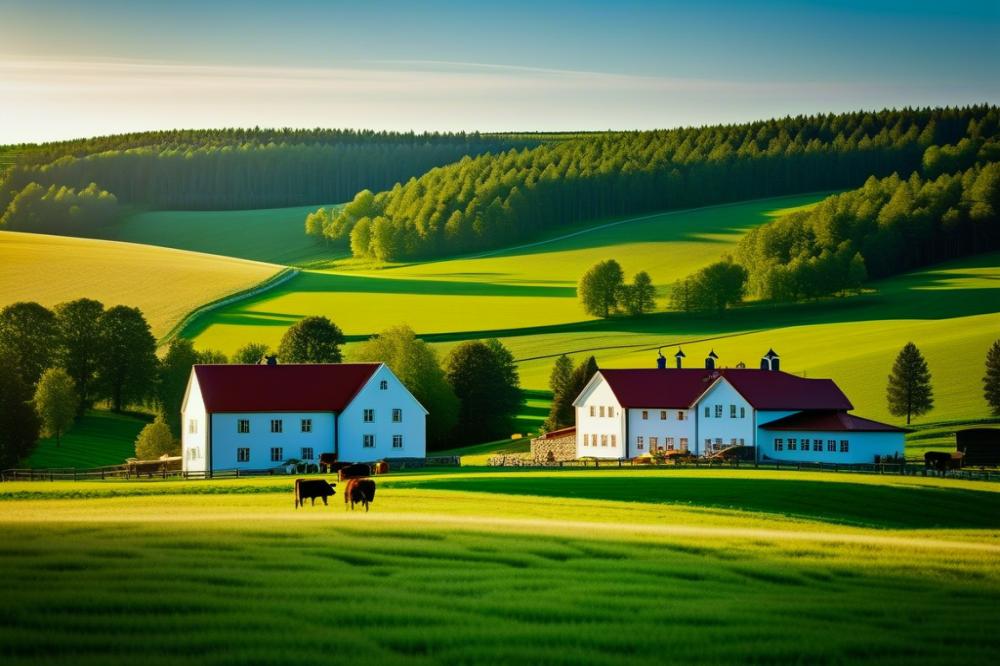
Cheesemaking in Sweden has deep roots that stretch back through centuries. Local farmers and artisans once created cheeses to preserve milk in a time when refrigeration was not available. Over the years, this craft evolved, blending ancient techniques with modern innovation. Today, both tradition and sustainability shape the cheesemaking landscape.
Swedish cheeses vary widely, showcasing flavors and textures that reflect the country’s diverse regions. Västerbotten cheese stands out for its strong, nutty flavor, often likened to a sharp cheddar. Aged cheese like Prästost carries a milder taste, appealing to many. Other local favorites include Hushållsost and Grönmögelost, which fill cheese boards with delightful variety.
Regions known for cheese production play a significant role in this story. Västerbotten, Skåne, and Östergötland are notable for their rich agricultural history, which supports dairy farming. These areas provide the fertile land and ideal climate for cows, goats, and sheep, contributing to high-quality milk. Well-managed farms focus on animal welfare and environmental practices, highlighting a shift toward responsible methods.
Many cheesemakers have emerged in recent years, bringing fresh ideas and dedication to the craft. Their passion for traditional techniques paired with a commitment to eco-friendly practices creates interesting cheeses that appeal to both locals and visitors. Noteworthy figures like Ostmakeri in Jämtland and Bjästgård Gård in Västernorrland represent this new wave of artisanal producers. These cheesemakers understand the importance of community and regional identity, often engaging with local farms.
Consumers increasingly seek out ethically produced cheese. This demand encourages cheesemakers to adopt sustainable practices. Connecting with local farmers and using raw milk, many producers create products that resonate with health-conscious individuals. The results reflect the essence of Swedish nature, inviting people to enjoy genuine flavors that honor both the environment and the craft.
As Sweden’s cheesemaking scene continues to grow, it reflects broader societal changes. Sustainability in food production is not merely a trend; it’s becoming an industry standard. Through commitment to quality and environmentally friendly processes, Swedish cheesemakers invite everyone to appreciate their tradition. Each bite tells a story of the land, the communities, and the care taken to produce something truly special.
Recipe: Traditional Swedish Cheese Scones
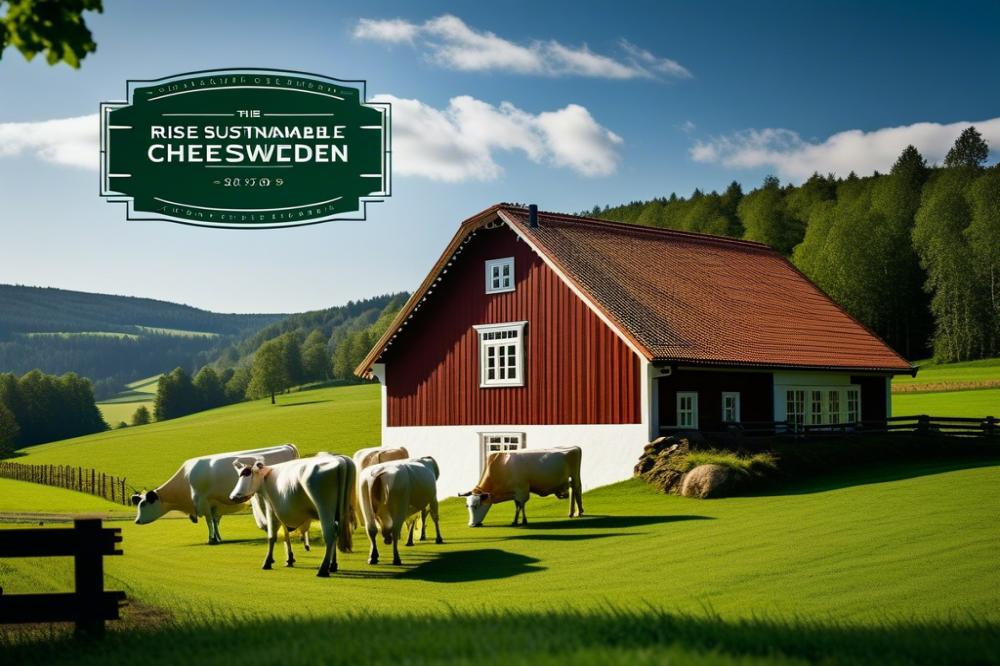
Creating traditional Swedish cheese scones at home combines simplicity with delicious flavors. These scones make for an excellent snack or a delightful addition to breakfast. Using local cheeses like Västerbotten or Prästost introduces a special twist.
Ingredients:
- 2 cups all-purpose flour
- 1 tablespoon baking powder
- 1/2 teaspoon salt
- 1/4 cup cold butter, cubed
- 1 cup grated Swedish cheese (e.g., Västerbotten or Prästost)
- 1 cup milk
- 1 egg (for egg wash)
Instructions:
- Begin by preheating your oven to 425°F (220°C).
- In a mixing bowl, whisk together flour, baking powder, and salt.
- Next, cut in the cold butter until the mixture looks like coarse crumbs.
- Now, stir in the grated cheese to enhance the flavor.
- Gradually add milk, mixing until you create a soft dough.
- Turn the dough out onto a floured surface and knead it gently.
- Roll the dough out to about 1 inch in thickness and cut into rounds.
- Arrange the rounds on a baking sheet and brush with the egg wash.
- Bake for 12-15 minutes or until golden brown.
- Serve warm to enjoy the delightful aroma and taste!
Nutritional Information (per scone):
- Calories: 200
- Protein: 8g
- Fat: 10g
- Carbohydrates: 22g
Health Benefits:
Each scone provides protein from the cheese, which is great for muscle health. Calcium content supports strong bones, making this treat not just tasty but beneficial too. Carbohydrates offer energy, making these scones a practical choice for various occasions.
Final Thoughts
Sustainable cheesemaking plays a vital role in Sweden’s culinary scene. This approach is not just about cheese; it’s about preserving the environment and supporting local farmers. As Swedes increasingly prioritize organic practices, cheesemakers are moving toward methods that respect nature. They focus on animal welfare, sustainable feed, and minimal processing. The result is not only delicious but also ethical.
Artisanal cheese has become a staple in many households due to its rich flavors and high-quality ingredients. This cheese offers a unique taste profile that pre-packaged options simply can’t match. Additionally, these products promote biodiversity and local ecosystems. When you purchase locally made cheese, you support these vital connections. Sustainable practices can reshape our food system and offer a path towards a healthier planet.
Readers should take this opportunity to explore the world of Swedish cheese. By trying a few new varieties, one can experience the delightful textures and flavors native to the region. Trying your hand at making cheese at home can be rewarding too. With so many simple recipes available, anyone can enjoy the process.
Embracing this movement means making choices that matter. Each time you select an organic dairy product, you contribute to a larger cause. Adventuring into this culinary landscape not only benefits your palate but also supports a sustainable future. Why not dive in and discover the joys of Swedish cheese today?

